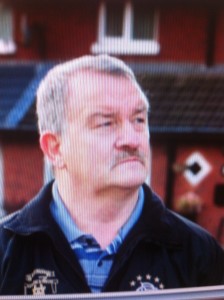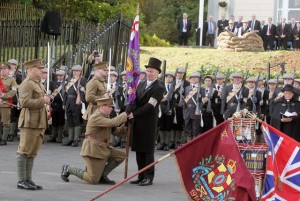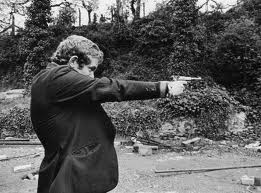Britain and the formation of modern Yemen
Half a century ago today a tribal revolt began in the mountainous Radfan region of South Arabia (now Yemen), which was to have far-reaching repercussions for Aden, Britain’s only Middle Eastern colony and its military headquarters in the region. Most South Arabian tribes were Sunni Muslims, divided up into hundreds of different groupings, each part of larger confederations.
By 1967, the Radfan revolt was regarded as the opening salvo in a national liberation struggle that would lead to British withdrawal and the beginning of the end of its East of Suez role. Until then it was generally accepted that Britain would continue to play a leading role internationally, but with the devaluation of sterling in the mid-1960s the country’s economic base began to disintegrate. When it was returned to office, the Labour Party restricted defence expenditure, recognising that Britain could no longer afford an imperialising mission. Britain’s withdrawing from Aden in November 1967 left behind a non-functioning government. No official handover of power took place as in other colonial exits such as Malaya and Kenya. The new Peoples’ Republic of South Yemen was staffed by relatively inexperienced men who had been junior government officials under the British or led an armed struggle against their colonial masters.
 Aden had been a viable entity during British rule, but the new state of South Yemen suffered from extreme poverty, political instability and structural violence. This Marxist regime drove out the old ruling sultans, sheikhs and amirs and established itself in palaces of the former elites. Crucially, the Marxists sought to eradicate the centuries-old tribal system exploited so well by the British to safeguard their interests in the region. After 1967 the Marxist regime also accepted aid from the Soviet Union in exchange for serving as a vital naval base. Arguably, Aden’s status as a safe-haven for a range of terrorist organisations – including the Palestinian Liberation Organisation and other Islamist-based groups – sowed the seeds of insecurity that western countries live with today.
Aden had been a viable entity during British rule, but the new state of South Yemen suffered from extreme poverty, political instability and structural violence. This Marxist regime drove out the old ruling sultans, sheikhs and amirs and established itself in palaces of the former elites. Crucially, the Marxists sought to eradicate the centuries-old tribal system exploited so well by the British to safeguard their interests in the region. After 1967 the Marxist regime also accepted aid from the Soviet Union in exchange for serving as a vital naval base. Arguably, Aden’s status as a safe-haven for a range of terrorist organisations – including the Palestinian Liberation Organisation and other Islamist-based groups – sowed the seeds of insecurity that western countries live with today.
Therefore it is important to reflect on the meaning of 14 October, especially in light of attempts to reach a political consensus about the kind of state Yemenis want in the run up to Presidential elections in 2014, the resurgence of secessionism in the south, and continuing violence from Al Qaeda in the Arabian Peninsula.
Surprisingly, some southern Yemenis fondly recall the stability afforded by the British until 1967, while others blame Britain for their country’s historic problems. There are merits in both interpretations and much to be learnt by examining the Radfan revolt half a century ago.
 The revolt began when the Egyptian Intelligence Service smuggled guns and ammunition across the porous border from North Yemen to dissident tribesmen in the British-administered Western Aden Protectorate. This rugged terrain, staunchly independent, risked becoming a no-go area for the British.
The revolt began when the Egyptian Intelligence Service smuggled guns and ammunition across the porous border from North Yemen to dissident tribesmen in the British-administered Western Aden Protectorate. This rugged terrain, staunchly independent, risked becoming a no-go area for the British.
South Arabia became a Protectorate under the Colonial Office in the 1920s, with Britain exerting control through ‘bribery, bluff and bombing’. For Middle East analyst Fred Halliday this was part of Britain’s wider colonial strategy of ‘indirect rule’ – providing local tribal chiefs with guns and cash in exchange for non-interference in British control of Aden. There were few guarantees in this tribal system and frequent disputes, manifested for example in attacks on the British-trained Federal Regular Army (FRA).
When the British attempted to open the South Arabian interior to free trade in 1963 they set their Federal allies on a collision course with the Radfani rebels. The tribesmen had long resisted the imposition of trade tariffs by the local sultan. For centuries they had levied their own taxes on local traders and camel trains passing along the Dhala Road from Aden to the border with Yemen and Saudi Arabia.
As the local British Political Officer Godfrey Meynell would discover, colonial authority had limited purchase in Radfan. When he requested FRA support, the Radfanis saw it as a declaration of war and fighting broke out in Wadi Misrah, home to the restive Qutaybi tribe, part of the Radfani tribal confederation. The Qutaybis, led by Sheikh Rajih bin Ghalib Lab’uza, sent the FRA retreating to Dhala. After a disagreement between Meynell and the FRA commander, Colonel Haider Saleh al-Habili, Meynell contacted authorities in Aden and was told to return to Wadi Misrah in force the next day.
After a fierce battle on 14 October 1963, involving RAF Hawker Hunter aircraft and armoured cars, Sheikh Lab’uza was killed. Subsequently claimed as the first martyr of the National Liberation Front (NLF) struggle against the British, Lab’uza was replaced by 26-year-old Ali Ahmad Nasir Antar, who would later become Vice President of the Peoples’ Democratic Republic of South Yemen.
After terrorists tried to assassinate him in Aden, and in light of FRA casualties on the Dhala Road, High Commissioner Sir Kennedy Trevaskis authorised a more punitive military expedition. When this failed to repel the Radfani tribesmen, Trevaskis reluctantly turned to Britain’s Middle East Command which deployed a larger brigade-level force in April 1964. Radfan Force (known as Radforce), was spearheaded by 45 Commando, 1 East Anglian Regiment and 3 Para, backed by British aircraft, helicopters, artillery and tanks. In total 3,210,688 bullets, tens of thousands of grenades, hundreds of thousands of pounds of high explosive, and an enormous quantity of bombs and rockets, eventually broke Radfani dissidence.
By mid-June Radforce had succeeded in clearing Wadi Misrah of rebel tribesmen at a cost of only a handful of British casualties. The Dhala Road reopened and with it a renewed British determination to maintain their Arabian foothold. The Minister of Defence Peter Thorneycroft said in Parliament:
For the foreseeable future Aden will be necessary to our strategy, and our absence from it would both render us unable to discharge our direct obligations to our friends, and would set in train events harmful to the cause of peace. It is therefore our purpose and intention to stay there, and our military plans, dispositions and actions will be shaped to this end.
In other words, Aden would remain central to British grand strategy in the Cold War.
However, the growing insurgency faced by Britain was matched by the political challenge of establishing a broad-based government in Aden. When the Labour Party was returned to power in October 1964 they reversed Conservative policy on South Arabia. In 1966 the Foreign Office continued to back the Federal rulers only until ‘something better came along’. By early November 1967 Britain was ready to negotiate with the NLF and on 30 November the new state of Southern Yemen was born. In 1990, it was united with the North.
Examining the Radfan revolt 50 years on offers important insights into the current problems bedevilling Yemen’s bid to transition from the old regime of Ali Abdullah Saleh to a more representative government as promised by the current President Abdo Rabu Mansour Hadi.
October 2013
About the author
Aaron Edwards is a Senior Lecturer at the Royal Military Academy Sandhurst and author of the forthcoming book Mad Mitch’s Tribal Law: Aden and the End of Empire (Mainstream/Random House, 2014). aaron_edwards@hotmail.com



















